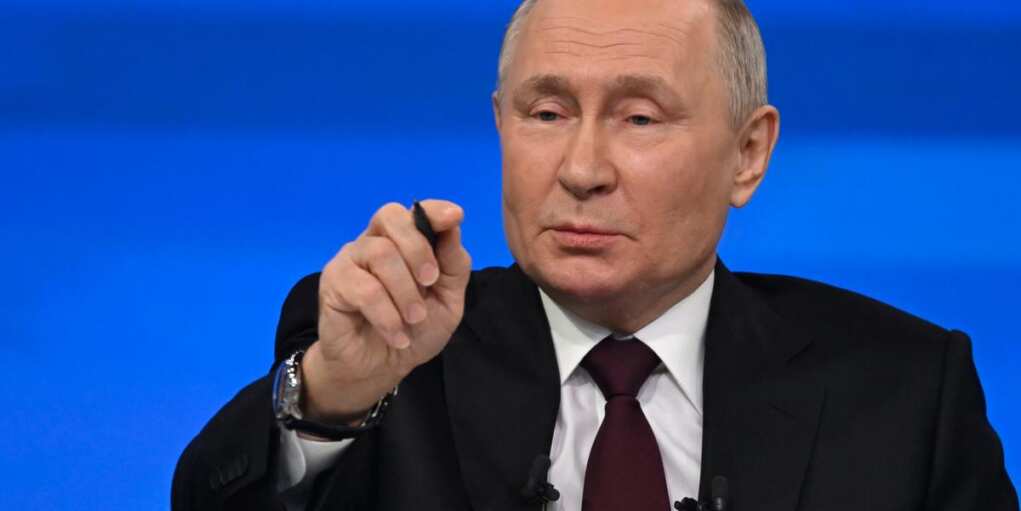Putin Warns The West—Foreign Troops in Ukraine Are ‘Legitimate Targets’

Russia’s president just removed any ambiguity about how Moscow would treat Western boots on the ground in Ukraine. Speaking on a panel at the Eastern Economic Forum in Vladivostok, Vladimir Putin said plainly that foreign soldiers entering Ukraine while fighting continues “will be legitimate targets.” The remark was aimed squarely at European talk of a “peacekeeping” presence—an idea the Kremlin has repeatedly branded unacceptable.
The message was twofold. First, Moscow is not buying the semantic distinction between combat forces and peacekeepers in the midst of an active war. Second, the Kremlin wants any eventual settlement wrapped in hard text, not soft promises. Putin said Russia would honor a treaty ending the conflict, but added that security guarantees would need to run both ways. Later, spokesman Dmitry Peskov underscored the point, saying Moscow would require “legally binding documents” to spell out obligations—“you can’t just take anybody’s word for something,” he told a Russian outlet.
That stance lands as Russian forces continue grinding pressure across the front. Ukrainian officials reported another massive overnight wave—well over a hundred attack drones alongside a handful of missiles—aimed at cities and infrastructure. Kyiv says most of the UAVs were intercepted, but strikes still damaged residential areas and utilities far from the line of contact. In other words: the war is hot, and talk of placing outsiders between the combatants is no longer a hypothetical—it’s a fuse.
Why Putin’s phrasing matters: by explicitly labeling foreign troops “legitimate targets,” the Kremlin is drawing a red line that collapses the gap between observer and belligerent. Peacekeeping in post-conflict zones usually comes after a cease-fire, with robust consent and clearly delimited rules of engagement. What European leaders have been musing about is something much riskier—deploying while artillery duels, drone swarms, and missile salvos are still the daily soundtrack.
That instantly raises questions for Brussels and major European capitals. Would a contingent under an EU or ad-hoc flag carry the kind of air defenses, counter-drone tools, and long-range fires needed to survive in modern high-intensity combat zones? Who provides the overhead protection if Russia treats their positions like any other Ukrainian military node? And most combustible of all: what happens politically if French, Italian, German, or Polish personnel are killed by Russian strikes? The step from “stabilization force” to “direct confrontation” can be breathtakingly short when the first coffins arrive home.
Putin, for his part, also tried to sound accommodating about a future settlement—at least on paper. He said “no one should doubt” Moscow would abide by a formal agreement to halt operations if and when one is signed. But coupling that assurance with a preemptive rejection of outside troops signals the Kremlin’s preferred sequencing: treaty first, international presence maybe later, and only with documents that lock in limits on what those forces can do.
The uncomfortable reality is that both tracks are now advancing at once. On the one hand, Western leaders keep testing the waters for mechanisms to freeze the conflict and deter renewed offensives. On the other, Russia is escalating pressure through massed drones and selective missile strikes, tightening the vise on Ukraine’s grid and logistics. Add Putin’s new warning, and the margin for error shrinks dramatically.
European governments now face a stark choice. They can keep floating the peacekeeper trial balloon and risk calling Moscow’s bluff—inviting a confrontation they insist they don’t want—or refocus on the tools that have sustained Ukraine thus far: air defenses, ammunition, and financial lifelines, while pushing any physical presence to the true post-war phase. Either way, Putin’s statement has clarified the stakes. Anyone who steps into Ukraine before the guns fall silent should plan to be treated like a combatant—because Russia just said it will.
